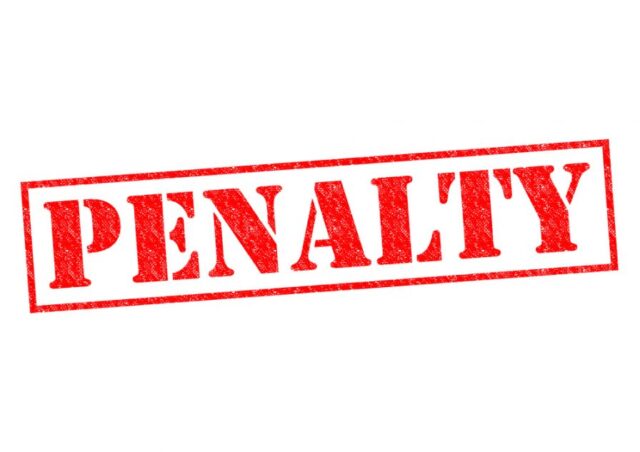
For the unlucky few who find themselves pulled over for suspected drunk driving, your first legal steps might seem overwhelming. Don’t worry, this blog post has you covered. Keep reading to find out just what to do if you ever find yourself in the unfortunate situation of being pulled over for a DUI – and make sure you drive safe when you hit the roads again!
Knowing Your Rights

When pulled over for a possible DUI, it is important to know your rights. The Fourth Amendment of the United States Constitution protects citizens from unreasonable search and seizure, which means that if you are driving a vehicle on a public roadway, you are subject to reasonable suspicion searches by police. If there is reasonable suspicion that a crime has been committed and/or the potential for ongoing criminal activities occurring or about to occur, an officer can lawfully stop your vehicle and ask questions. If you’ve been pulled over and arrested for suspected DUI, you may consider hiring a lawyer like Aswani Datt to represent you. While many states have different laws and regulations about the amount of representation an accused individual has, it is often beneficial to enlist an experienced DUI attorney at this stage in the process.
It’s important to remember that anything you say to an officer can potentially be used against you in court. It’s best to remain calm while providing truthful answers when stopped on suspicion of it without volunteering any additional information. You should never admit guilt or take responsibility for any situation. It’s also important to be familiar with your state’s Implied Consent Laws, which require drivers to provide law enforcement with breath samples upon being pulled over on suspicion of Driving Under the Influence. Refusing this breath test would result in suspension of your driver’s license by the Department of Motor Vehicles (DMV).
You also have the right to refuse a sobriety field test such as walking a straight line or standing on one foot; however, with consequences such as having your license suspended for up to 18 months if convicted of DUI depending on the state laws. Further questions can include asking where you were going at that time or what alcohol products have been consumed prior driving. While it may seem insignificant – these answers might assist law enforcement put together enough evidence needed secure conviction charges in court and could make all the difference at sentencing – so the best advice is not answer then until you’ve obtained legal counsel first before answering any time related question while pulled over under suspicion of Driving Under Influence.
What to Do if Pulled Over for DUI

If you are pulled over by law enforcement under the suspicion of driving while intoxicated or under the influence of drugs, it’s important to take some concrete steps to protect yourself.
- Stay calm. This can be easier said than done, but panicking or arguing with the officer is not going to help your case. Be courteous and polite towards them, even if you feel disappointed or resentful.
- Don’t answer any questions other than basic identification – such as your name, date of birth and address – without first consulting a lawyer. Anything that you say can be used against you in court, so it is recommended that you remain silent and contact a lawyer as soon as possible for further advice on how best to proceed with your case.
- Always comply with the arresting officer’s instructions and submit to chemical testing if asked by law enforcement officers. Refusal of testing comes with severe criminal penalties in some states and can often result in being charged more severely than if drinking before driving was admitted in the first place.
- Exercise your right to legal representation immediately upon arrest and during questioning – never agree to waive this right prior to speaking with a lawyer or anxious family members who may not be knowledgeable on DUI defense or criminal law in general.
- Gather evidence as much information as possible when following up on arrests, including police statements, witness statements and field sobriety test results that may help build a strong defense against charges at trial.
DUI Penalties

Depending on the severity of the offense, driving under the influence (DUI) can result in a variety of criminal penalties – including fines, suspension or revocation of one’s driver’s license, probation and even incarceration. Even for those who are considered first-time offenders, a conviction may bring serious repercussions both personally and professionally.
License Revocation/Suspension: Most states impose mandatory license suspensions or revocations upon conviction for any DUI offense. The length of these suspensions will vary from state to state, but they can range from 30 days to several months or even years. Depending on the state in question, individuals may be unable to obtain a restricted or occupational license (which allows offenders to drive for very limited purposes) until certain conditions have been met.
Fines: Along with criminal penalties that include fines ranging from hundreds to thousands of dollars depending upon the statutes at issue and level of intoxication – which are determined by blood alcohol concentration (BAC). Fines imposed by most states also recently began include mandatory fees that must be paid in order to reinstate one’s driver’s license once their suspension period has expired.
Probation: Most states impose terms of probation along with other DUI penalties (such as community service). Probation allows individuals sentenced on drunk driving charges to remain out of jail while circumstances associated with their cases are reviewed and monitored by the court system. Typically speaking, violations such as incurring new law enforcement contact or failing drug tests may subject an offender to additional harsh punishments or added probationary terms that must be steadfastly adhered to.
Conclusion
The aftermath of being pulled over for a DUI or DWI charge is emotionally and financially stressful. When facing such a difficult situation, it is important to stay informed, hire an experienced lawyer, and understand how to navigate the legal process on your own terms. The best way to achieve this is by speaking with an attorney who specializes in DUI defense law. With an experienced legal advisor, you will be able to get the best possible outcome from your circumstances.









